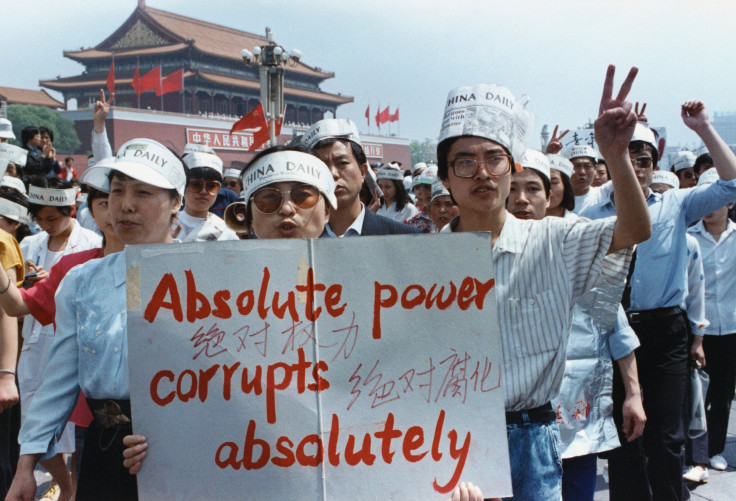China Jails And Fines Two Journalists Accusing Them Of Fabricating Stories, Accepting Bribes

A court in central China's Hunan province jailed two Chinese journalists on Friday for fabricating stories about a state-run engineering company, Xinhua reported. Many journalists in China claim that they are detained or intimidated if they write about politically sensitive issues.
Chen Yongzhou was an investigative journalist with the New Express, a state-backed tabloid based in the southern city of Guangzhou. In 2013, he and a colleague published stories stating that Zoomlion Heavy Industry Science and Technology Co Ltd. had registered fraudulent sales, exaggerated profits and had used public relations tactics to bring down its rivals, according to Reuters. Chen was detained by the police and later confessed to accepting bribes for fabricating the stories.
The Changsha court had said that Chen collected bribes worth 30,000 ($4,897) and sentenced him to 22 months in jail with a 20,000 yuan fine. Zhuo Zhiqiang, who had written some of the stories about Zoomlion with Chen, was sentenced to 10 months in jail with a fine of 10,000 yuan.
In August, another journalist working for the New Express was released after almost a year in detention for accusing officials of corruption.
The latest arrests come as the Chinese government is trying to filter information made available to the public through journalists, lawyers and the Internet. In July, Beijing had warned the country’s journalists to stop providing information to foreign media or to domestic media where they are not employed.
The Chinese government is also currently facing criticism for its role in Hong Kong’s pro-democracy protests and its efforts to restrict the information available about the unrest to citizens on the Chinese mainland.
Last week, a U.S. congressional panel had released a report condemning Beijing of increasing restrictions on human rights advocates, civil society, journalists, religious institutions and the Internet.
“This year’s report shows that human rights, freedom of speech, and rule of law deteriorated in China, while China’s compliance with international trade rules remained poor,” Senator Sherrod Brown, chairman of the Congressional-Executive Commission on China, said in the report.
China had responded to the report's accusations by asking the U.S. to stop interfering in its personal affairs.
© Copyright IBTimes 2024. All rights reserved.












